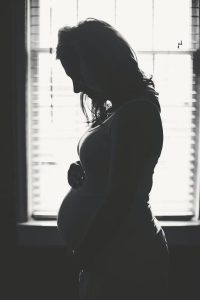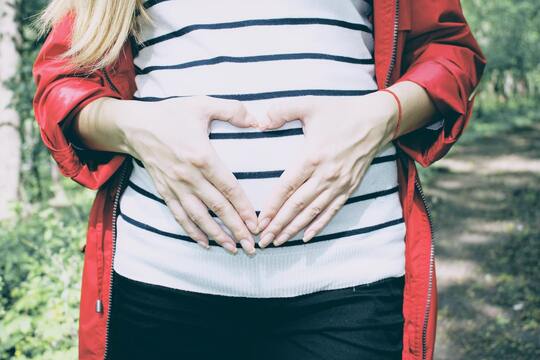When it comes to taking a pregnancy test, the anticipation can stir a cocktail of excitement and anxiety. But did you know that several factors can affect the outcome of your test, leading to false positives or negatives? Understanding these nuances is crucial, especially for those eagerly trying to conceive or hoping to avoid a surprise.
This article dives into the common questions does drinking coffee affect pregnancy tests ? and concerns about pregnancy tests, offering insights into how certain habits, like your morning coffee ritual, could potentially influence your results. Whether you’re a hopeful parent-to-be or simply curious, this read is packed with valuable knowledge that demystifies the process of taking a pregnancy test.
What Factors Can Cause a False Pregnancy Test?
When taking a pregnancy test, getting an accurate result is crucial. Certain conditions can lead to false positives or negatives. For example, a false positive might occur if there are traces of the pregnancy hormone HCG from a recent pregnancy, fertility treatments, or certain rare medical conditions.
On the other hand, a false negative could happen if you take the test too early when HCG levels are still too low to detect, or if your urine is too diluted.
How Does the Time of Day Affect a Pregnancy Test Result?
It’s often recommended to take a pregnancy test first thing in the morning. Why? Because your urine is more concentrated after a night’s sleep, the level of HCG is higher and easier for the test to detect.
Taking a test later in the day, especially after drinking fluids, can dilute your urine and possibly lead to a false negative if you’re very early in your pregnancy.
Can Drinking Too Much Water Lead to a False Negative?
Hydration is essential, but when it comes to pregnancy tests, drinking too much water before taking the test can dilute your urine. This dilution may cause the level of HCG to fall below the sensitivity threshold of the test, potentially leading to a false negative result.
If you’re taking the test early in pregnancy, be mindful of your water intake to avoid a diluted sample.
Is It Possible for Caffeine to Affect Pregnancy Test Results?

One of the most common concerns among caffeine lovers is whether their morning ritual can influence the outcome of a pregnancy test. The short answer is no; caffeine itself does not directly affect the result of a pregnancy test.
Pregnancy tests work by detecting the hormone human chorionic gonadotropin (HCG) in urine. This hormone is only present in significant amounts when a woman is pregnant, and caffeine does not interact with HCG levels.
There’s a twist to consider while caffeine does not chemically interfere with the test, it can influence the body in ways that might indirectly affect the test result. Caffeine is a diuretic, which means it can lead to increased urination.
If you’re drinking a lot of coffee or other caffeinated beverages, you might urinate more frequently, which can lead to more diluted urine. As previously discussed, dilute urine can result in a lower concentration of HCG and potentially a false negative result—especially if you’re taking the test early in your pregnancy when HCG levels are just beginning to rise.
Some might wonder, “Doesn’t caffeine cause other effects that could influence the pregnancy test?” Caffeine can indeed make you feel jittery or anxious, and stress can affect your hormone levels. However, the stress caused by caffeine is unlikely to alter HCG levels quickly or significantly enough to change the outcome of a pregnancy test.
To ensure the most accurate test results while enjoying your daily caffeine:
Moderation is Key:
Limit your caffeine consumption to 200 milligrams a day, as generally recommended during pregnancy. This equates to about one 12-ounce cup of coffee.
Stay Hydrated:
Make sure you balance your fluid intake with water and not just coffee, as this will help maintain a normal level of urine concentration throughout the day.
while a cup of coffee won’t directly invalidate your pregnancy test, it’s the potential for increased urination and diluted urine that could lead to a false negative.
It’s best to test when your urine is most concentrated, or if you’ve had a significant amount of caffeine, wait a few hours before taking a pregnancy test to avoid the likelihood of dilution.

When Is the Best Time to Take a Pregnancy Test for Accurate Results?
The best time to take a pregnancy test is after your period is late. This timing allows the HCG hormone, which the test detects, to reach a significant enough level in your urine. For the most accurate result, it’s best to take a pregnancy test in the morning when your urine is most concentrated.
What Are the Signs That You Should Take a Pregnancy Test?
Recognizing pregnancy symptoms early can prompt you to take a test. Common signs include missed periods, nausea, increased urination, and fatigue. If you experience any of these symptoms or if you’re actively trying to conceive, it might be time to take a home pregnancy test.
Can Medications Interfere with Pregnancy Test Accuracy?
Certain medications can affect the result of a urine pregnancy test, particularly those containing the HCG hormone or that alter your hormone levels. If you’re on any medication and unsure about its effects, consult a healthcare professional before taking the test.
Why Is It Important to Follow Test Instructions Carefully?
A pregnancy test is designed to be user-friendly, but incorrect use can lead to false pregnancy test results. Ensure you understand the process—such as how long to wait before reading the result—and adhere strictly to the manufacturer’s instructions to ensure the accuracy of the test.
How to Deal with Conflicting Pregnancy Test Results?
It’s not uncommon to get a false reading, which is why many women take several different tests. If you receive conflicting results, wait a few days and retake the test or consult a healthcare professional for a more definitive urine or blood test.
FAQ:
Q: What is a false positive pregnancy test?
A: A false positive pregnancy test is when the test shows a positive result for pregnancy when the person is not actually pregnant.
Q: Can drinking coffee cause a false positive pregnancy test?
A: No, drinking coffee does not cause a false positive pregnancy test.
Q: Should I drink coffee before taking a pregnancy test?
A: It is recommended to follow the instructions provided with the pregnancy test and avoid drinking excessive fluids, including coffee, before taking the test.
Q: What are the signs of early pregnancy?
A: Some signs of early pregnancy include missed periods, breast tenderness, nausea, fatigue, and frequent urination.
Q: Should I take another pregnancy test if the first one is positive?
A: If the first pregnancy test is positive, it is recommended to take another test to confirm the result.


Leave a Reply